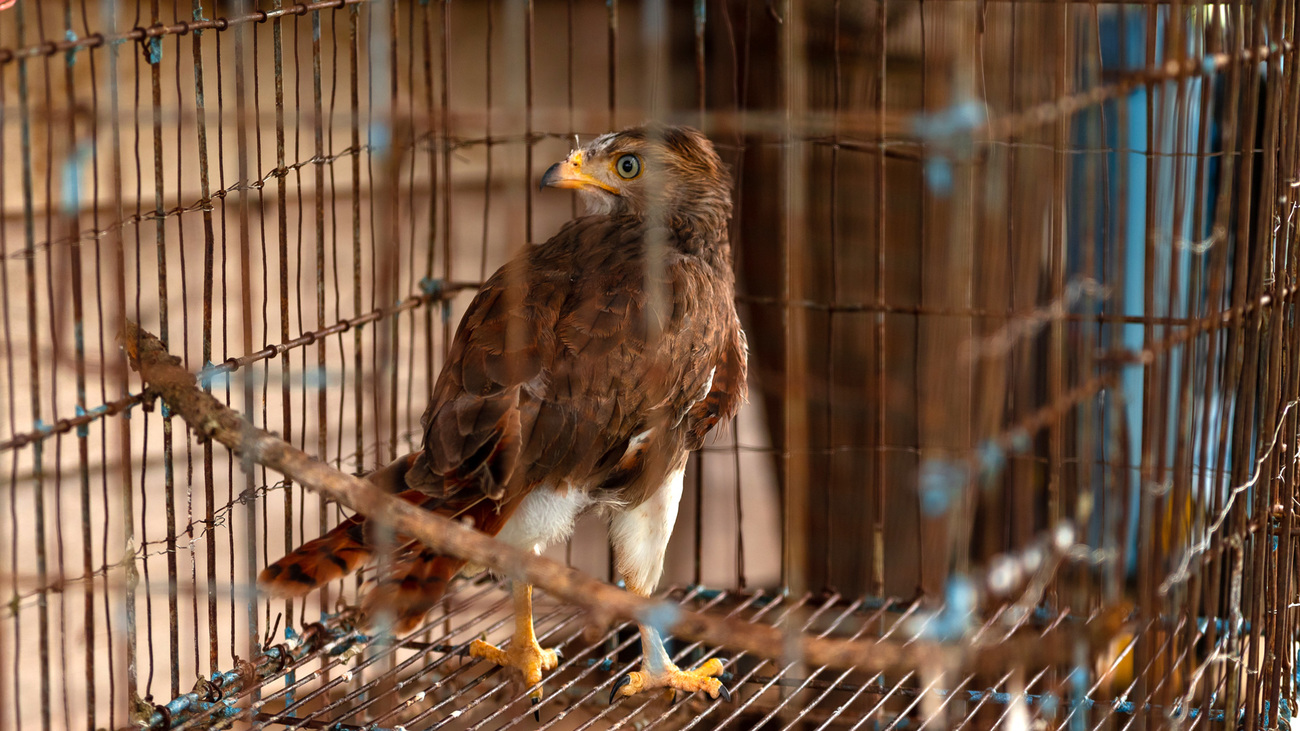Blog
Meet 15 of the most poached animals in 2025
Read moreNew “Wildlife Confiscations Network Act” will help save smuggled animals across the US

Washington, D.C. (May 22, 2025) – Today, members of Congress took an important step toward safeguarding trafficked wildlife, addressing wildlife crime, and advancing the wellbeing and conservation of imperiled animals. The new bill will help to ensure that wild animals confiscated at US ports of entry can be effectively and efficiently placed in expert care, thereby significantly increasing their chances of survival.
U.S. Representatives Andrew Garbarino (NY-02) and Mike Quigley (IL-05) introduced the bipartisan Wildlife Confiscations Network Act of 2025 (H.R. 3538). Experts at IFAW see the move as an important step toward providing confiscated wild animals with life-saving care.
“IFAW has worked for years to educate the public about wildlife trafficking, reduce demand for wildlife parts and products in the US and abroad, and support robust enforcement of wildlife protection laws and treaties,” said Danielle Kessler, US Country Director at IFAW. “We applaud the introduction of this important legislation, which, once enacted, will help to ensure that confiscated animals—many of whom are imperiled species, and are transported in heartbreaking conditions, denied food, water, the ability to move, and more—have the best possible chance of surviving and even thriving in the care of experts.”
When trafficked animals are intercepted during transport into the US, they have in many instances been through harrowing capture and long, brutal journeys; for those who survive, rapid, specialized care and placement are urgently needed if they are to survive. Some animals need temporary care before they can be repatriated; for the many others who cannot be returned to their wild homes, specialized, lifetime care is essential. In all circumstances, rapid, expert intervention and care are critically important.
From 2015 to 2019, U.S. Fish and Wildlife Service officials oversaw 834 cases involving live wildlife denied clearance for entry to the country. Those cases, taken together, represented 48,793 individual live specimens, each in need of placement and specialized care—a total of 27 live animals per day. Qualified sanctuaries, zoos, rehabilitators, and other animal care experts and facilities play a crucial role in providing urgent care and placement for these animals. By streamlining and funding wildlife confiscations networks, the proposed legislation can help to maximize the number of confiscated animals who survive and thrive.
"The Wildlife Confiscations Network has already placed over 4,100 confiscated animals into quality facilities," said Congressman Quigley. "I am proud to introduce legislation that expands this law enforcement network nationwide, ensuring that law enforcement officers are not unduly placed in harm’s way, and animals receive the care they need."
“The Wildlife Confiscations Network Act will build upon the success of a regional pilot program to place confiscated animals that has been in place since late 2023,” noted Kessler. “In fewer than two years, that network has been called upon to help with over 135 wildlife trafficking cases and has placed thousands of animals into qualified facilities. By codifying this program, Congress will ensure that this highly effective approach to placing and caring for captive wildlife can be expanded and sustained nationwide.”
By enacting this innovative measure, leaders in Congress can help to ensure that animals victimized by wildlife trafficking have the best possible chance of survival. IFAW will work with elected officials, zoos, sanctuaries and federal wildlife agencies to ensure that the Wildlife Confiscations Network Act becomes law, advancing the wellbeing of animals and people alike.
every problem has a solution, every solution needs support.
The problems we face are urgent, complicated, and resistant to change. Real solutions demand creativity, hard work, and involvement from people like you.
Unfortunately, the browser you use is outdated and does not allow you to display the site correctly. Please install any of the modern browsers, for example:
Google Chrome Firefox Safari